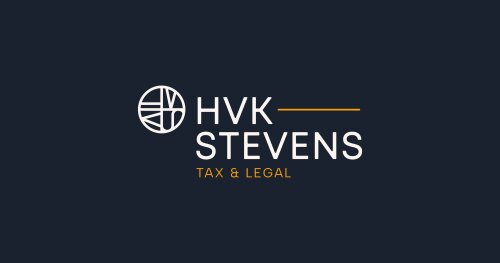Best Inheritance Law Lawyers in Luxembourg
Share your needs with us, get contacted by law firms.
Free. Takes 2 min.
Or refine your search by selecting a city:
List of the best lawyers in Luxembourg
1. About Inheritance Law in Luxembourg
Inheritance law in Luxembourg governs how a deceased person’s assets are paid out to heirs and legatees. The framework is built on the Luxembourg Civil Code, which sets rules for testate and intestate succession, forced heirship, and shares for spouses and descendants. In practice, many estates are settled with the help of a Luxembourg notaire (notary) who prepares the necessary acts and documents.
The law also covers essential concepts such as droit d'usufruit (usufruct) and réserves héréditaires (forced shares), which protect certain relatives from being disinherited. When someone dies with a will, the will must comply with these protections; otherwise, the dispositions may be challenged or rebalanced. For non-residents with Luxembourg assets, cross-border rules can apply and influence which law governs the succession.
Luxembourg recognizes both testamentary dispositions and intestate succession, with formal requirements for wills and declarations of succession. Notaries are common in Luxembourg practice to ensure validity and to manage tax aspects and the formal transfer of property. Understanding these rules early can prevent disputes and delays in distributing an estate.
2. Why You May Need a Lawyer
Answering a few practical scenarios can show when it is wise to seek Inheritance Law counsel in Luxembourg. A specialist can guide you through procedural steps, document preparation, and potential disputes.
Scenario 1: You are named executor or administrator and must coordinate the estate. If you are appointed to manage assets, debts, and distributions, a lawyer helps you understand your duties and timelines. They can prepare the required inventories and coordinate with a notaire to prepare the acte de partage. This reduces the risk of errors that could lead to delays or liability.
Scenario 2: You dispute a will or the calculation of a forced share. If you believe the reserved portion for children or a spouse has not been properly respected, a lawyer can assess the validity and help pursue a corrective arrangement. They can also interpret complex provisions, including usufruit rights and succession reservations.
Scenario 3: International assets or cross-border elements are involved. When a deceased person owned property in Luxembourg but lived elsewhere, or vice versa, EU cross-border rules may apply. A lawyer can determine applicable law under Regulation (EU) No 650/2012 and coordinate with foreign authorities and attorneys.
Scenario 4: You face tax implications or reporting obligations. Inheritance tax and related filings are handled through Luxembourg authorities. A lawyer can estimate potential taxes, advise on exemptions, and help prepare tax documents to avoid penalties or delays.
Scenario 5: Real estate or significant assets are involved. Real estate transfers require precise legal steps and often a notary's involvement. A lawyer helps ensure the transfer aligns with the will, if any, and with the applicable tax regime.
Scenario 6: You want to plan a cross-border will or estate plan. A lawyer can help craft a will that minimizes conflicts and ensures enforceability under Luxembourg law and cross-border rules, reducing future disputes among heirs.
3. Local Laws Overview
The Luxembourg legal framework for inheritance relies on national law with cross-border solutions when needed. Here are two key elements you should know.
Code civil luxembourgeois - Droit des successions
The Code civil luxembourgeois provides the main rules for succession, including how assets pass on death, the rights of close family members, and the mechanism for sharing an estate. It also governs the creation and execution of wills, as well as the formalities for succession acts. The code is periodically amended to reflect changes in practice and EU considerations. For the most current text, consult the official law portal.
Access to the official text and updates is available through Luxembourg's government legal portals. These resources help you verify which articles apply to your situation and how they interact with cross-border rules. Legilux - Luxembourg laws
Règlement (UE) No 650/2012 sur la compétence et la reconnaissance des décisions en matière de successions
This EU Regulation standardizes cross-border successions within the European Union. It designates the applicable law based on habitual residence and simplifies jurisdiction and recognition of probate decisions across member states. It has been in force since mid-2012 and affects Luxembourg cases involving assets or heirs in multiple countries. EUR-Lex - Regulation 650/2012
Luxembourg implements this regulation in its domestic procedures, often guiding how wills are interpreted and which court handles the matter. For practical guidance, consult a Luxembourg notaire or attorney who understands cross-border succession. European e-Justice Portal
4. Frequently Asked Questions
What is the difference between a will and intestacy in Luxembourg?
A will specifies how assets pass after death, while intestacy applies when there is no valid will. In Luxembourg, forced shares protect certain heirs regardless of the will. A lawyer can explain how these rules affect your plans.
How do I start a succession in Luxembourg?
Typically you contact a Luxembourg notaire to open the succession procedure. The notaire collects documents, confirms heirs, and drafts the acte de partage or acte de notoriété as needed.
When does a will become valid in Luxembourg?
A will must meet formal requirements and, if authentic, be executed before a notaire or witnessed by witnesses as required by law. A lawyer can advise on ensuring validity and avoiding revocation issues.
Where can I file a succession or get a certificate of inheritance?
The notaire handles most formalities and issues attestations of succession. In complex cases, a court may be involved for confirmation or resolution of disputes.
Why are forced heirship rules important in Luxembourg?
Forced shares ensure that close relatives receive a minimum portion of the estate. These protections limit the extent of freely distributable assets and influence comprehensive estate planning.
Can a non-resident inherit Luxembourg assets?
Yes, non-residents can inherit Luxembourg assets, but cross-border rules may determine which law applies and how taxes are assessed. A lawyer helps navigate jurisdictional questions.
Do I need a Luxembourg notary for the estate?
Not always, but many essential steps require a notaire, including the acte de partage for real estate transfers and certain testamentary matters. A lawyer can coordinate with the notary.
Should I plan a will to minimize taxes and disputes?
Yes. A well drafted will with an understanding of reserved portions and cross-border considerations can reduce disputes and optimize tax outcomes. Seek legal advice early.
Do I need to understand cross-border succession when I own assets abroad?
Yes. EU Regulation 650/2012 often applies to cross-border estates. A lawyer can determine which law governs and facilitate cooperation with foreign authorities.
Is there a difference between inheritance tax and donation tax in Luxembourg?
Inheritance tax and donation tax are separate. Both are governed by Luxembourg tax rules and may have exemptions based on relationship and asset value. A tax adviser or lawyer can explain specifics.
What is the typical timeline for resolving a straightforward succession?
A simple, uncontested succession may take several months, depending on asset complexity and the involvement of a notaire. Contested cases or real estate transfers often extend the timeline to a year or more.
5. Additional Resources
These official resources provide authoritative information on Luxembourg inheritance law and procedures.
- Legilux - Luxembourg laws - Official portal with the consolidated Civil Code text, succession provisions, and updates. legilux.public.lu
- Ministère de la Justice - Government site with guidance on succession procedures, notaries, and probate processes. justice.public.lu
- European e-Justice Portal - EU resource on cross-border succession rules and jurisdiction. e-justice.europa.eu
Quote: Regulation (EU) No 650/2012 coordinates cross-border successions within the European Union and determines the applicable law based on habitual residence.
6. Next Steps
- Gather key documents: death certificate, last will (if any), list of assets, debts, and family relationships. Collecting these early speeds up the process.
- Identify whether a will exists and its format. If there is a will, determine if it needs a notarial authentication.
- Consult a Luxembourg inheritance law solicitor or notaire with experience in cross-border issues if you have international assets.
- Arrange an initial consultation to review heirs, potential claims, and obligations. Ask about expected timelines and fees.
- Determine the applicable law under Regulation 650/2012 and confirm whether a local court or notary should handle the estate.
- Prepare and submit the required documents to the notaire or relevant authority for succession proceedings.
- Agree on a plan for sharing assets, addressing any disputes, and filing tax declarations with the Administration des contributions directes as needed.
Lawzana helps you find the best lawyers and law firms in Luxembourg through a curated and pre-screened list of qualified legal professionals. Our platform offers rankings and detailed profiles of attorneys and law firms, allowing you to compare based on practice areas, including Inheritance Law, experience, and client feedback.
Each profile includes a description of the firm's areas of practice, client reviews, team members and partners, year of establishment, spoken languages, office locations, contact information, social media presence, and any published articles or resources. Most firms on our platform speak English and are experienced in both local and international legal matters.
Get a quote from top-rated law firms in Luxembourg — quickly, securely, and without unnecessary hassle.
Disclaimer:
The information provided on this page is for general informational purposes only and does not constitute legal advice. While we strive to ensure the accuracy and relevance of the content, legal information may change over time, and interpretations of the law can vary. You should always consult with a qualified legal professional for advice specific to your situation.
We disclaim all liability for actions taken or not taken based on the content of this page. If you believe any information is incorrect or outdated, please contact us, and we will review and update it where appropriate.
Browse inheritance law law firms by city in Luxembourg
Refine your search by selecting a city.














